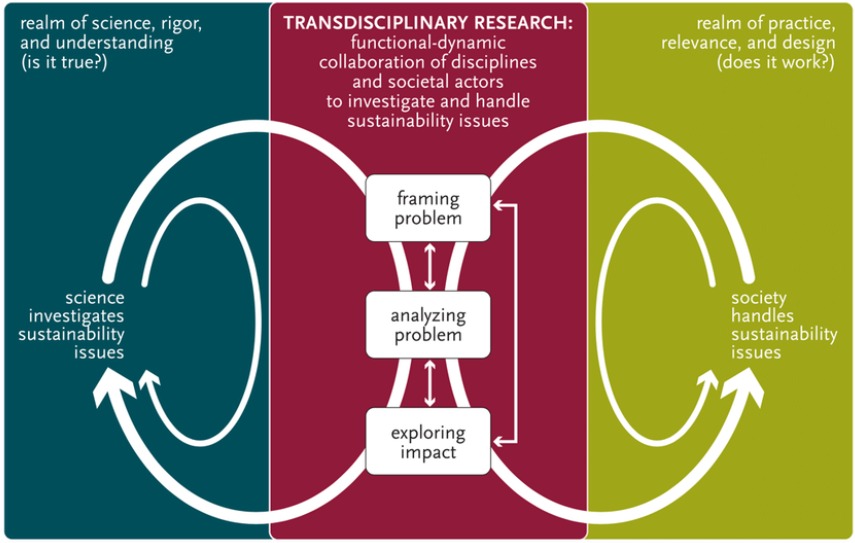Health and climate drivers and solutions in Africa co-exist/interact within the same social context. While climate and health research communities are relatively well-developed, their connection is currently weak because there is a limited understanding of the modes of engagements for integrating health and climate change research, policy, and practice. Existing networks have focused on integrating social science into health debates (e.g. LanderNet); scoping health and climate data (e.g. the INSPIRE network); and pursuing new climate-health research (e.g. heat-related health risks in natural settings).
Through the Wellcome Trust funded project “‘Consultation on communities of practice for transdisciplinary research and action in climate change and health in Africa“, The Africa Research and Impact Network (ARIN) in partnership with the Africa Population Health Research Centre (APHRC) , aim to generate evidence and recommendations on options for strengthening transdisciplinary research and policy on health and climate change in Africa and the potential role of CoPs in this process.
We will pursue a relatively exploratory consultative approach to help understand what works for an impactful and sustainable transdisciplinary research in health and climate change. We note that a CoP is one of the considerations that will require deeper investigations amidst other options that might emerge from the consultations. As such, we are not pinned down by any framework because that could narrow/weaken our consultations and ability to unpack underlying opportunities. We will nevertheless leverage some best practices for proven frameworks e.g. see here. We will incentivize a broad range of researchers and practitioners to participate in the consultations by 1) sensitizing them about the value of contributing to the programme including potential funding opportunities 2) providing some facilitative stipends to our regional and country focal points and relevant APHRC teams to mobilize researchers within their networks and contexts and 3) building on networks that are already part of our ongoing work.
Objectives of the study
The objectives of the proposed study are as follows:
1. To comprehensively map the current landscape of pertinent Climate and Health policies, including associated actions, and identify key local stakeholders operating within the realms of research, policy, and practical implementation in the African region.
2. To gain insights into the challenges and opportunities faced by relevant stakeholders, spanning research, policy-making, implementation, affected communities, and supporting organizations in Africa. This includes an exploration of barriers and facilitators for their involvement in transdisciplinary research and the advancement of climate and health initiatives.
3. To engage with stakeholders to ascertain effective mechanisms and activities aimed at bolstering climate and health literacy, awareness, and capacity within the region. This will involve documenting the existing strategies and activities employed by these stakeholders to foster collaborative efforts in enhancing climate and health literacy, awareness, and capacity.
4. To identify approaches and activities conducive to strengthening connections and coordination among researchers from diverse disciplines, policy and practice actors representing various sectors, and fostering collaborations between researchers and the policy and practice communities in order to promote climate and health initiatives.
The consultations will involve:
- Rapid stakeholder mapping and needs assessment: To understand the existing health and climate change working relationships/networks, we will map both research and non-research groups working in the two fields, their connections, needs, strategic plans, opportunities and challenges for linking up. The mapping will involve i) review of databases, document and consultations with identified coalitions/networks and stakeholder groups/cohorts g., the DELTAS, population studies cohorts, climate change alliances/partnerships, among others. Both ARIN and APHRC are already leading pan-African climate change and health communities and ii) short online surveys targeting different stakeholder groups including policy makers, civil society, academia/think tanks, private sector with a sample target of at least 2000 respondents to further understand their needs, working modalities, and focus among others. The rapid review and assessment will also help data types, sources, and platforms connecting health and climate change.
- Regional-online focused group dialogues: building on the above consultations, targeted regional-focused group dialogues will be convened with an array of stakeholders in the five African regions: East, West and Central, South, and North Africa working with our regional and country focal points spread across 36 African countries. The number of FGDs per region will be agreed upon with WT and based on needs and emerging gaps. More specifically, the FGDs will i) further identify health and climate research and action networks as well as their functionalities and ii) topics and funding mechanisms for joint climate-health research/policies, the types of stakeholders working within those agenda, and the enablers for transdisciplinary climate-health research agenda (see Figure 1). A final continental workshop will be convened to validate recommendations and identify areas of deeper analysis.
- In-depth interviews with key informants: Detailed insights and recommendations on the emerging strategic needs, priorities, opportunities, and enablers will further be interrogated through in-depth expert interviews with key informants identified from research and non-research groups.
- Recommendations: we will develop recommendations for a functional and sustainable health-climate CoP design including i) key stakeholders and networks; ii) key research areas iii) key capacity and funding needs and design.
If you’re interested in joining this project, don’t miss out.
Please share your details and register with us today.
Outputs
1. Inception Report
[dflip id=”10293″ ][/dflip]
2. Webinar 1 Report
[dflip id=”10313″ ][/dflip]
3. Webinar 3 Report
[dflip id=”10304″ ][/dflip]

